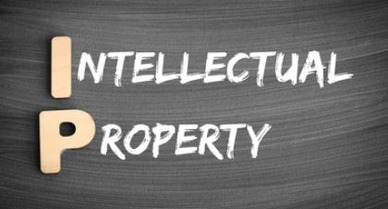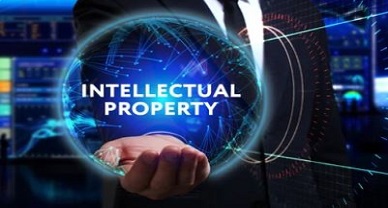Personality Rights In India : A Statutory And Judicial Analysis
Introduction
Personality rights refer to a person’s ability to safeguard his or her identity in the context of a property or privacy right. Celebrities value these rights since their names, images, or even voices may be inappropriately used in commercials by various businesses to increase sales. Thus, in order to protect their personal rights, famous people and celebrities must register their names.
Personality rights are divided into two categories: first, the right of publicity, which protects individuals from having their likeness or image used for commercial purposes without their consent or financial compensation. This right is similar to the use of a trademark but not the same. Second, the right to privacy, which protects individuals from having their identities disclosed to the public without their consent.
Intellectual Property Rights, Personality Rights, Trademark, Copyright
Intersection Of Personal Rights With Other Constituitional Rights
[Image Sources : Shutterstock]
According to the media, they have an inherent right under Article 19 of the Indian Constitution’s “Freedom of the Press” to gather and publish any material on celebrities that is related to “public interest” or “public concern.” Since it intrudes on their private life and right to privacy, celebrities and public figures have objected to this. Every person has the right to protect their own lives and the way they are seen by the rest of the world. A third party should not have the authority to control how his or her identity is used for commercial purposes without that person’s permission.
Personality rights as such are not expressly stated in the Constitution, but in the case of Judge K.S. Puttaswamy v. Union of India, AIR 2017 SC 4161, privacy was acknowledged as a basic right under Article 21 of the Constitution. Privacy is a “right to be left alone” that is an extension of liberty, and anyone who uses another person’s identity without that person’s consent is seen to have violated both that person’s personality rights and their fundamental right to privacy.
Protection Of Personality Rights Under Ipr
Although the provisions of the country’s current IPR laws can be used as an indirect reference, the law dealing to such a violation of image rights has not received exclusive recognition under Indian law.
The Indian Copyright Act, 1957
According to the act , only creators and performers, including actors, singers, musicians and dancers, have moral rights. The provisions of the Act provide that the author or performer has the right to receive recognition or claim copyright for his work and the right to prevent others from causing any damage to his work.
Section 57 of the Copyright Act protects the special rights of the author, including the personal rights of the artist. The performer owns the ownership of the performance under Section 38 of the Copyright Act and has sole control over the recording and reproduction of the performance. Apart from section 38 the rights conferred on personality can be derived by Section 17, 39 and 52 of the Copyright Act.
Trade Marks Act of 1999
The Indian Trademark Act does not provide for the exclusive protection of personal or image rights. However, Section 2(m) appropriately includes the term “names” in its definition of “trademark”1 . Several Indian celebrities like Baba Ramdev and famous actress Kajol have followed the branding route to avoid misuse of their names.
Section 14 of the Trademark Act deals with the use of the name or likeness of a living or recently deceased person. The statutory provisions of Section 14 limit claims that falsely suggest association with a living or deceased person who died within 20 years of the filing date of the contested mark.
The same may be defended under section 35 if the same act is based on a bona fide belief.
The Delhi High Court in its judgment in Arun Jaitley vs Network Solutions Private Limited and Ors Case (2011) observed that the popularity or reputation of an individual on the Internet is not different from reality. The court also noted that the name also belongs to the category where, in addition to personality, it has also acquired its own distinguishing features.
Judicial Recognition
- The Madras High Court, in Shivaji Rao Gaikwad vs. Varsha Productions (2015) 62 PTC 351, dealing with a case filed by the renowned Indian actor Mr. Rajinikanth, observed that while there is no definition of “Personality Right” under any Statute in India, courts in India have recognised the same in various judgements, which are further dealt with as follows.
- In Titan industries v. M/S Ramkumar jewellers, CS (OS) No.2662/2011, the Delhi High Court ruled that, “When a prominent person’s name is exploited in advertising without their consent, the objection isn’t that no one should commercialise them; rather, it’s that they should have the power to decide when and how their identity is utilised. The power to regulate how one’s identify is utilised for commercial reasons is defined as the right to publicity.”
- The Delhi High Court recently issued an omnibus order or an ex parte ad interim injunction in the case of Amitabh Bachchan v. Rajat Nagi & ors, CS (COMM) 822 OF 2022, prohibiting the public from using one of the most well-known actors, Amitabh Bachchan’s name, image, voice, or any of his characteristics without his permission.
In the Amitabh Bachchan case (Supra), the actor sued the Defendants Rajat Nagi & Ors., as well as the general public, for allegedly misappropriating his name, look, voice, and personality attributes. In his petition, the actor stated that he came to the High Court because of the misappropriation of his name, image, and voice, particularly by mobile application developers, individuals running lotteries by improperly partnering with KBC, book publishers, T-shirt dealers, and a variety of other businesses. The ruling also paves the way for the development of the country’s personality rights law.
Conclusion
The protection of personality rights cannot be fully achieved by any IPR system. The concept of personality rights is incompatible with the specific gaps in the laws controlling copyright, passing off, and trademarks. Being sui generis, personality rights cannot be adequately positioned under any IPR laws. It is crucial that the rules change to reflect the current times, given the rise in popularity of public personalities and the general growth in privacy awareness. It is a first-of-its-kind case, and Amitabh Bachchan’s recent situation has ignited the need for personality rights in India. In the creative ecosystem, where the concept of privacy is extremely brittle and easily invaded, only time will tell how well-known public figures choose to protect their personality and characteristics going forward.
Author: Nandini Bagri, A Student at New Law College, Bharati Vidyapeeth ( Deemed to be University ), Pune, in case of any queries please contact/write back to us at support@ipandlegalfilings.com or IP & Legal Filing.
REFERENCES
- https://heinonline.org/HOL/LandingPage?handle=hein.journals/ijlmhs15&div=73&id=&page=
- https://www.livelaw.in/columns/personality-rights-amitabh-bachchan-protection-ex-parte-ad-interim-injunction-217539
- https://amlegals.com/infringement-of-personality-under-ipr/
- https://www.mondaq.com/india/trademark/1211056/protection-of-personality-and-image-rights-in-india
- https://vajiramias.com/article/how-do-personality-rights-protect-celebrities/6389a4049b457a05c56e9aab/#:~:text=In%20India%2C%20the%20publicity%20rights,the%20position%20of%20constitutional%20rig
- https://byjus.com/free-ias-prep/personality-rights-upsc-notes/#:~:text=Personality%20rights%20refer%20to%20the,their%20sales%20(commercial%20purposes).
- https://www.lexology.com/library/detail.aspx?g=0759e39a-7803-4d67-95fa-f54624e99951
- https://www.thehindu.com/news/national/explained-how-do-personality-rights-protect-celebrities/article66211659.ece
- https://www.drishtiias.com/daily-updates/daily-news-analysis/personality-rights



